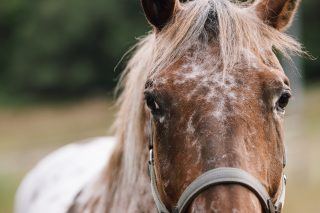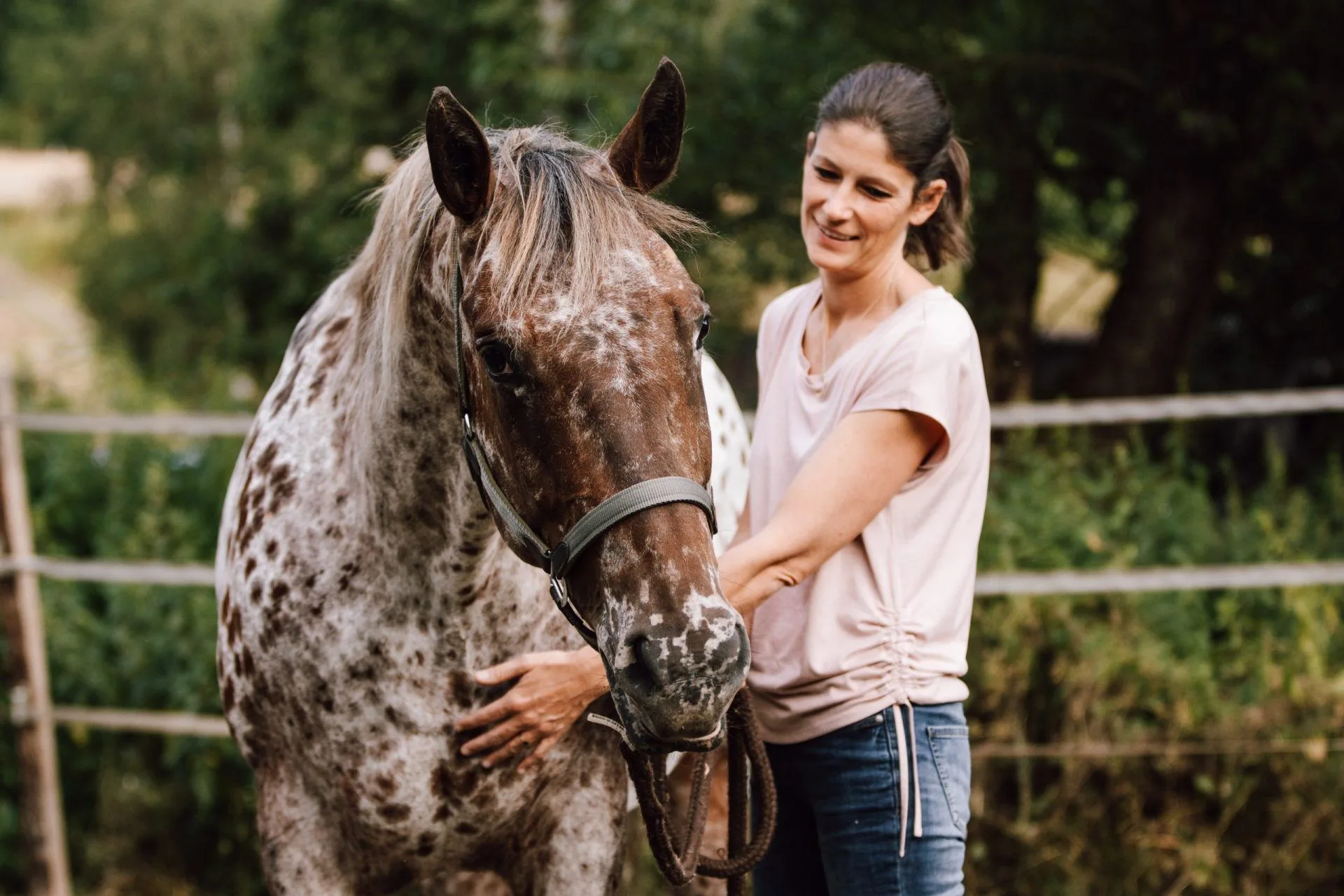Horses have been our faithful supporters for centuries. Beings of power, independence, freedom, endurance, confidence, triumph, and heroism, they’re essential parts of history, mythology, and folklore. They were also man’s most loyal companions in battle and a means of plowing fields and transportation. Today, horses are mostly sporting and lifestyle companions to millions of people. We discovered how equine therapist Anne Scharlow uses her unique gift of intuitive healing to address trauma in horses in need.
Horses and Equine therapy
Today, we no longer take horses to war or use them for farming and transportation, and you may even have heard of horse therapy as a practice for human healing. However, we still put them in situations that may cause a physiological imbalance or even post-traumatic stress. Typical examples are horse-racing or equine competition.
Anne Scharlow uses her innate ability to encourage deep healing in horses in need. Growing up in Germany, Anne always loved horses. Although she wanted a career that would allow her to interact with them, she didn’t see herself in a traditional teacher-student paradigm. It was only after moving to South Africa 15 years ago that her unique skills began to evolve, and her calling became clearer.
What are the conditions that drive horses to need therapy?
As a conscious horseman, Anne sees horses as physical, emotional, and spiritual beings. She says equine therapy is a far more common need than you may think. Horses are mammals with functioning nervous systems. This means they can experience adrenaline rushes, stress, and anxiety, and suffer great psychological distress in unfavorable conditions.
“Lots of thoroughbreds come out of racing with immense trauma, because it’s a highly unnatural environment. These animals are not designed for such pressure,” she says.
Like people, horses can display trauma in many ways
“People come to me when interacting with their horse and no longer feel safe or manageable,” she adds. “This means that their horses have either disassociated from their surroundings, are constantly ill or display strong behavior, like biting, bucking or anxiety.”
And it doesn’t matter how much you love your horse – competition conditions can tip their nervous system out of balance.
Learning to communicate 
Anne’s ability to communicate with horses began shortly after she acquired a horse named Rohan. Although she was eager to ride and even compete, Rohan jumped out of his horse box six months into his arrival and developed pelvis problems.
It didn’t get easier to ride Rohan after his recovery, either. As much as Anne tried everything to get a saddle on his back, he wouldn’t comply. He just didn’t want to be ridden.
“Rohan would try to buck me off, and even ran in front of a truck at one point – it left me in complete shock!”
I needed to find a way to understand him
His objections to being handled by humans forced me to figure out what he was telling me. In the end, I realized he was trying to ask me, “Why?”. Why do I have to wear a bit in my mouth? I don’t want to be ridden. Why do I have a saddle? Why do you want to ride me?”
In time, Anne used Rohan’s eccentricities to better understand the feelings of other horses. She learned to pick up on subtle cues in their movements and expressions.
Today, Anne uses her intuitive abilities, highly observant nature, and longing for a deeper spiritual understanding to build the bond between humans and horses.
Conscious horsemanship
If you’re working towards improving your relationship with your horse, Anne believes conscious horsemanship is the way to go. This approach is about feeling what your horse shares with you, and honoring the decision to manage the life of another sentient being.
Whether you choose to ride together or not, it’s about being truthful to what both you and your horse want to explore together.
Two crucial things that she urges all horse owners to do:
- Take more pauses
Whether after you train or kit up, take time to take a break and be present with your horse. Horses spend so much time just “being” in their herds, building bonds. So if you can pause to be with your horse, instead of always having to do something, it’ll improve your bond.
2. Trust your intuition
Being a conscious horseman is about trusting your intuition. When you invest in getting to know yourself better, you can act from a place of understanding, and your relationship with your horse shifts into one of mutual trust.
“When a horse needs to share challenging information, I sometimes worry about what I have to say to a complete stranger. But almost every human sincerely accepts the messages I’m allowed to convey. Their horse’s words have the power to open their hearts and ignite positive change in a way no person ever could. It warms me to see how wonderful humans can be when a horse speaks to their heart.”
References
Conscious Horsemanship: Equine Healing



![women [longevity live]](https://longevitylive.com/wp-content/uploads/2020/01/photo-of-women-walking-down-the-street-1116984-100x100.jpg)










